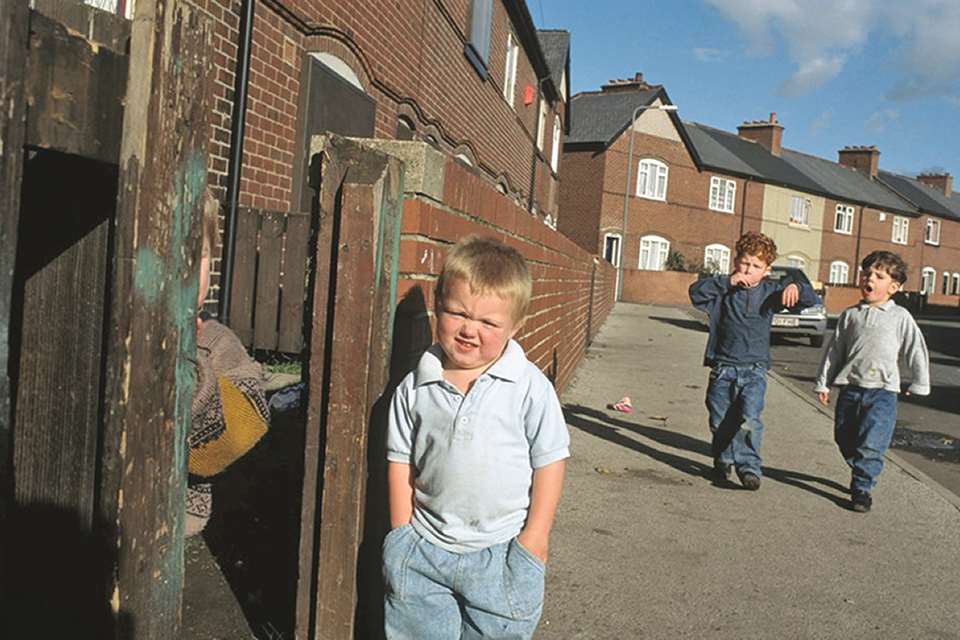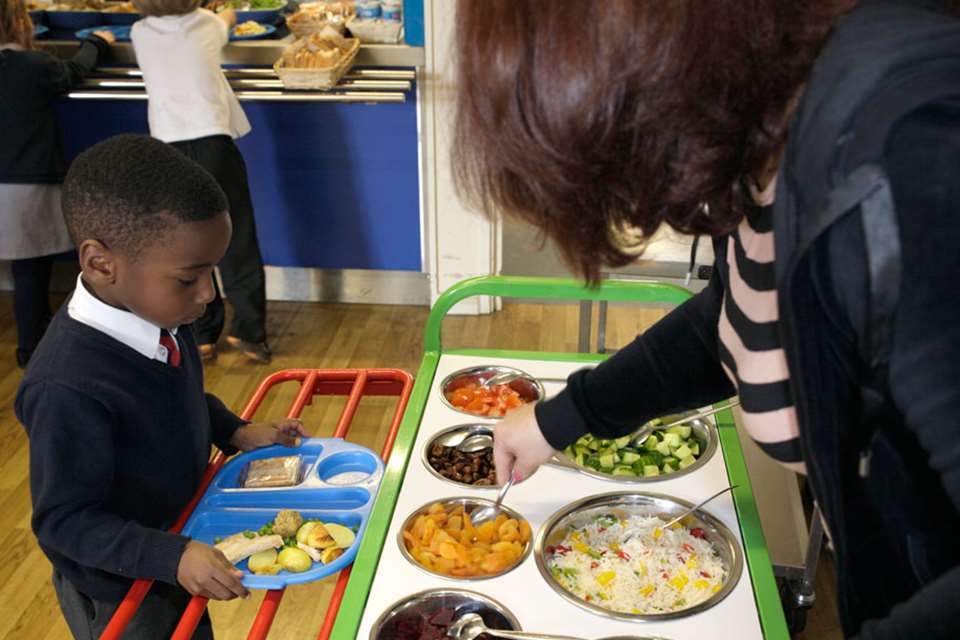Zahawi confirms changes to two-year-old eligibility, free school meals and EYPP
Thursday, February 8, 2018
Around 7,000 more two-year-olds will become eligible for a funded early education place under plans confirmed by education minister Nadhim Zahawi.

- Read the Government’s consultation response, 'Eligibility for free school meals, the early years pupil premium and the free early education entitlement for two-year-olds under universal credit' here.
The changes, which will start in April, are being brought in as part of the overhaul of the benefits system with the rollout of universal credit.
The proposals are set out in the Government’s response to two consultations, which covered eligibility for free school meals and the Early Years Pupil Premium (EYPP), and a separate consultation on the free early education entitlement for two-year-olds under Universal Credit.
Under the plans the Government will introduce an annual net earned income threshold of £15,400 for the two-year-old offer.
For a typical family earning around this threshold, this is equivalent to a household income of between £24,000 and £32,000 once benefits are taken into account. Households earning under this threshold, and receiving universal credit, will be eligible for the free early education entitlement for two-year- olds.
Under this new threshold, the Government estimates that by 2023 around 7,000 more children will benefit from the two-year-old entitlement compared to the previous benefits system.
Mr Zahawi said, ‘It is right that we must continue to offer the most disadvantaged young people additional help and I am pleased that, following public consultations, we can extend free school meals and the free early education entitlement for disadvantaged two-year-olds.
'Tens of thousands more children will be entitled to free school meals by 2022 compared to the previous benefits system.
‘I’d like to thank everyone who responded to these consultations; their views will help to ensure every child can access a world-class education and the support reaches those that need it most.’
Free school meals and the Early Years Pupil Premium
This consultation had asked for views on proposals for a net earnings threshold to determine eligibility for free school meals and the early years pupil premium under universal credit.
The Government response confirmed that it will introduce a net earning threshold for free school meals (FSM) of £7,400, roughly equivalent to a household income of between £18,000 and £24,000 once benefits are taken into account.
The same eligibility criteria will be used to determine eligibility for the early years pupil premium (EYPP), which gives extra funding to early years settings to boost the attainment of pupils from low income families.
Eligibility will be verified by using an equivalent monthly check verified from the household’s most recent universal credit assessment periods. The Government said its threshold is comparable with that introduced by the Scottish government for free school meals eligibility, and that it is ‘fair and appropriately targeted’.
The Government estimates that these plans mean that by 2022 around 50,000 more children will benefit from a free school meal compared to the previous benefits system.
It will keep this threshold at the same level until the end of the universal credit rollout period, and then review it to ensure that those who most need support are benefiting. Extra funding will be provided to schools to recognise the increase in the number of free school meals they will be providing.
The Government’s response said that many respondents to its consultation considered the threshold too low, with a substantial number (including an extra 8,421 emails received through the Children’s Society campaign) believing that all school-aged children from families receiving universal credit should be entitled to free school meals.
However, the Government said that this would mean that around half of all pupils would become eligible for free school meals, compared to the current rate of 14 per cent.
This is because some universal credit households will be on middle-incomes, sometimes exceeding £40,000 a year, and receiving in most cases only a small amount of universal credit.
The Government is laying regulations in parliament that will bring the proposed thresholds into force in April for free school meals and the early years pupil premium.
They will include protection arrangements for existing recipients of free school meals, so that no child will lose free school meals during the transitional period because of these changes.
The Government will provide schools, local authorities, early years settings and further education providers with guidance on the new eligibility criteria. This will support them in implementing the new arrangements and determining what evidence could be accepted to determine eligibility if they are not using our Eligibility Checking System. The guidance will also include information that they can share with families.
Purnima Tanuku, chief executive of National Day Nurseries Association (NDNA), said, ‘NDNA welcomes the principal of early support for children from disadvantaged backgrounds in order to give them the best start in life.
‘High quality early education is the best way to narrow the inequality gap.
‘However, the Government cannot just expect early years settings to be able to offer enough places for all eligible two-year-olds with the current funding rate. Our research shows that fewer nurseries are offering these places and more are planning to reduce the number of places they deliver so they can remain sustainable.
‘There needs to be adequate investment in this scheme to enable more settings to be able to offer all eligible two-year-olds a much-needed place. Currently most nurseries say their hourly rate falls below their costs, with an average shortfall of £638 per year per child.
‘It’s crucial for these children that the hourly rate meets nurseries’ costs as their parents may not be able to afford to pay additional charges for meals and snacks.
‘We are pleased that more children will benefit from the EYPP but this money should match the amount received by schools. Investing more in early years will pay dividends in later schooling.
‘If the Government is serious about tackling disadvantage, why not align EYPP with eligibility for the two-year-old offer which is available to a larger number of children? Then they would capture all those who really need this early boost.’
The Pre-school Learning Alliance warned that means-testing would mean that many low-income families would miss out on free school meals and the EYPP.
Neil Leitch, chief executive of the Pre-school Learning Alliance, said, ‘In our response to this consultation the Alliance raised serious concerns that any cap or means testing would create a cliff-edge that would exclude deserving, low-income families from free school meals and the early years pupil premium. It seems these concerns have been ignored. Unfortunately this response fits a recent pattern of Government consultations being a listening exercise in name only.
'The Government may claim that it is extending the availability of free school meals by 50,000 but this ignores figures from the Children’s Society which suggest the decision to introduce this earnings threshold could result in a million children missing out. In failing to respond to that research, and the concerns raised by the Alliance, the government has missed an opportunity to provide much needed additional support and instead, introduced a policy that risks heaping more misery on to struggling families.’







